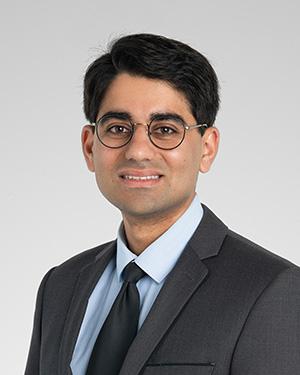Research News
03/18/2025
TSC gene study could help tailor plans for tuberous sclerosis complex treatment
The study links specific TSC1/2 gene mutations to distinct disease trajectories to help guide patient care and surveillance for this multi-faceted disease.

Families with tuberous sclerosis complex (TSC) gene mutations face a lifetime of uncertainty. Despite advances in genetic testing, medical teams cannot tell their TSC patients which of the disease’s long list of symptoms may arise from their mutation. For the first time, a team of Cleveland Clinic researchers have defined four distinct subtypes of TSC, each associated with their own specific gene mutations, disease trajectories and overall prognoses.
Senior author and Cleveland Clinic’s Section Head of Pediatric Epilepsy, Ajay Gupta, MD, has seen and treated many children with TSC. Some of the children developed seizures and mood disorders as they grew up, while others developed fatty tumors in their kidneys. Some even went on to develop brain tumors. Dr. Gupta explains it takes a village to manage this disease because different organs get involved at different points in a patient's life, and to a different extent and severity.
When neuro-oncologist Andrew Dhawan, MD, DPhil, joined Cleveland Clinic, he became part of that village by monitoring adult TSC patients for brain tumors (benign and cancerous) and treating them accordingly.
“Dr. Gupta and are I working on establishing a pipeline for young adults with TSC to come from his care to mine as they age out of his practice,” Dr. Dhawan explains. “We thought, there has to be a way to figure out which patients actually need to see me.”
Drs. Gupta and Dhawan led a team to analyze the US TSC Natural History Database, a repository of well characterized patients in the TSC Clinical Network (which Cleveland Clinic is part of), to look for any patterns in how the disease manifested. Their study, published in Brain, identifies four clusters of TSC with specific gene mutations and disease trajectories:
- TSC associated with tumor overgrowth in different organs, including the kidneys
- TSC with infantile spasms
- TSC associated with neuropsychological disorders
- Milder forms of TSC
Although more work is needed to validate their findings, the research team is excited for the impact this subtyping could have for patients and their families.
“Understanding how our patients’ genetics influence their symptoms will help us make sure our patients have everything they need – and only what they need – when it comes to treatment and surveillance,” Dr. Gupta says.
Drs. Gupta and Dhawan hope that by linking unique gene variants to specific symptoms, their study could advance personalized TSC treatments in the future by helping researchers develop targeted clinical trials to develop new therapies including potential gene therapies.
“Someone interested in developing a drug for TSC patients with brain or renal disease would probably only want to enroll the TSC patients who are going to have the most severe brain and renal symptoms,” Dr. Dhawan explains. “Giving the drug to a TSC patient whose kidneys are healthy could skew the clinical trial results, because the drug won’t make much of a difference for these people. The trial would fail even if the drug worked for its intended recipient.”
Drs. Gupta and Dhawan hope to enroll more pediatric and adult patients with TSC to further validate their findings and gain a better understanding of how individuals with different forms of TSC develop into adulthood.
“When I talk to my patients with rare diseases about my research, they're very excited that someone else is interested and cares about their disorder enough to learn more about it,” Dr. Dhawan says. “I would hope it means a lot to them. And I think, based on their responses, it does. It’s reassuring to us all, because we really are working together to figure this out.”
Featured Experts
News Category
Related News
Research areas
Want To Support Ground-Breaking Research at Cleveland Clinic?
Discover how you can help Cleveland Clinic save lives and continue to lead the transformation of healthcare.
Give to Cleveland Clinic